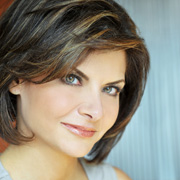"Dr G., do you have any ideas on the best way to lose weight?"
"What do you think about (name the supplement) for losing weight?"
Diet and nutrition questions are some of the most common that I get on Fox. My response always begins with the calorie speech: "In order to lose weight, calories consumed must be less than calories expended." I consistently take a hard stance on the physics of weight loss which makes some people bristle, especially those who believe that their weight issues are hormonal, genetic, or “their metabolism.” I emphasized this very black and white perspective in my February blog, "Weight Loss 101: Count Your Calories", where I explained, mathematically, how my own 2-1/2 pound weight loss was fully explained by the energy expenditure of some increased physical activity.
After seven months, I've lost a total of seven pounds and the thermogenic reality is a 24,500 calorie deficit. The bigger achievement, however, is the insight into my personal relationship with food.
1) Hunger does not necessarily mean that my body needs to eat. Emotional-eating has been a way of life for me. I just accepted this behavior as one of my (many) flaws until I learned about the physiologic effects of two hormones that have a powerful influence on the urge to eat—or not. Ghrelin is produced mainly by the stomach and pancreas. Levels are normally high before meals and make us feel hungry. Leptin, its counterpart, is produced by fat cells and causes feelings of satiety and reduces sugar cravings. When leptin levels increase after meals, the brain signals us to stop eating. Here’s the problem: these appetite-controlling hormones are not simply regulated by the body’s nutritional status. Ghrelin (or should I say, gremlin!) levels increase with sleep deprivation. (Maybe this is why I was at my heaviest during my residency?) And leptin levels, or the body’s sensitivity to it, may diminish in the presence of emotional stress. Just educating myself was enough to give me the willpower to pause before reaching for an extra helping or sneaking a second dessert. If I can objectively convince myself that I am calorie-deficient, fine. Open mouth, insert food. However, if I am tired, frustrated, angry or brewing with Greek emotional drama, then instead of using food as a Band-Aid, I try to address the root cause by sleeping, meditating, taking a walk--whatever it takes.
2) You are what you eat. Food Inc. is a 2009 documentary that unveils the secrets of the nation’s food industry and traces the commercial food chain from pasture to pantry. “The Burger That Shattered Her Life” is a New York Times, Pulitzer Prize winning (10/2009) article that exposes the lack of sanitation in the meat industry. Watching and reading these media pieces literally and figuratively made me feel sick to my stomach when I learned how vulnerable we are to E. coli and salmonella contamination. I am still angry at how the industry expertly manipulates our food choices. During the last few months, I naturally found myself making meals with more whole foods, less meat (and no ground beef) and a minimum of packaged or preserved products. This effortless shift in my preferences was not because of my own discipline or a moral-ethical dilemma but because ingesting food from a box, a can, or a freezer case seems somewhat toxic. Why would I voluntarily choose to feed pesticides, artificial flavors, preservatives, and other unknown ingredients to me and my family?
It’s not “just lunch…” It’s an extra 500-700 calories. And, it adds up.
To finish reading this blog, go to
http://archelleonhealth.blogspot.com/2010/07/figuring-out-life-long-affair.html





Add a CommentComments
There are no comments yet. Be the first one and get the conversation started!